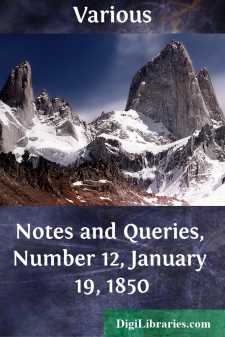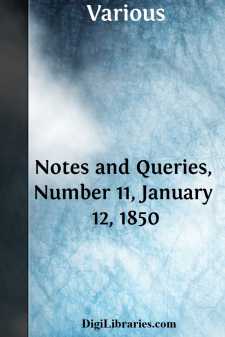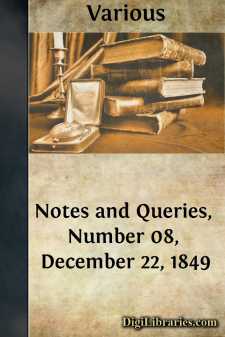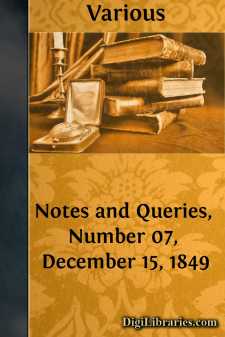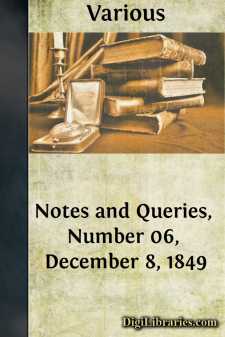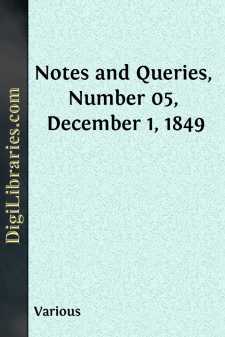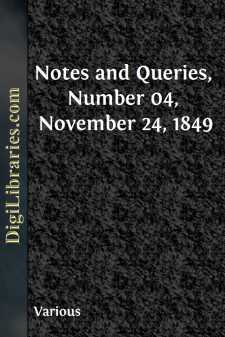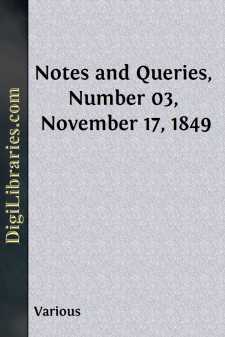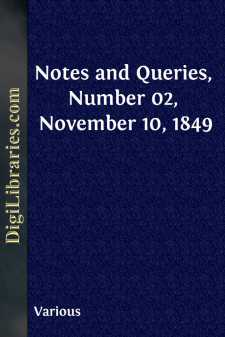Categories
- Antiques & Collectibles 13
- Architecture 36
- Art 48
- Bibles 22
- Biography & Autobiography 813
- Body, Mind & Spirit 142
- Business & Economics 28
- Children's Books 15
- Children's Fiction 12
- Computers 4
- Cooking 94
- Crafts & Hobbies 4
- Drama 346
- Education 46
- Family & Relationships 57
- Fiction 11829
- Games 19
- Gardening 17
- Health & Fitness 34
- History 1377
- House & Home 1
- Humor 147
- Juvenile Fiction 1873
- Juvenile Nonfiction 202
- Language Arts & Disciplines 88
- Law 16
- Literary Collections 686
- Literary Criticism 179
- Mathematics 13
- Medical 41
- Music 40
- Nature 179
- Non-Classifiable 1768
- Performing Arts 7
- Periodicals 1453
- Philosophy 64
- Photography 2
- Poetry 896
- Political Science 203
- Psychology 42
- Reference 154
- Religion 513
- Science 126
- Self-Help 84
- Social Science 81
- Sports & Recreation 34
- Study Aids 3
- Technology & Engineering 59
- Transportation 23
- Travel 463
- True Crime 29
Sort by:
by:
Various
ORIGIN OF A WELL-KNOWN PASSAGE IN HUDIBRAS. The often-quoted lines— "For he that fights and runs away May live to fight another day," generally supposed to form a part of Hudibras, are to be found (as Mr. Cunningham points out, at p. 602. of his Handbook for London), in the Musarum Deliciæ, 12mo. 1656; a clever collection of "witty trifles," by Sir John Mennis and Dr. James Smith....
more...
by:
Various
SIR EDWARD DERING'S HOUSEHOLD BOOK, A.D. 1648-52. About ten years since, I remember seeing, in the hands of a London bookseller, a curious MS. purporting to be the "Household Book of Receipts and Expences of Sir Edward Dering, Bart., of Surrenden Dering, Kent, from Lady-Day, 1648, to April, 1652." It was a think folio, in the original binding, entirely in the hand-writing of the...
more...
by:
Various
OUR PROGRESS We have this week been called upon to take a step which neither our best friends nor our own hopes could have anticipated. Having failed in our endeavours to supply by other means the increasing demand for complete sets of our "NOTES AND QUERIES," we have been compelled to reprint the first four numbers. It is with no slight feelings of pride and satisfaction that we record the...
more...
by:
Various
WHAT BOOKS DID OTLOH WRITE? Sir,—In Dr. Maitland's able vindication of the Dark Ages (p. 419. 1st ed.), he concludes his interesting extract from the scribe Otloh's account of himself by saying:—"One would like to know what books they were which Otlohnus thus multiplied; but this, perhaps, is now impossible." I have it accidentally in my power to identify two at least of the...
more...
by:
Various
MARRIAGE CONTRACT OF MARY QUEEN OF SCOTS AND THE EARL OF BOTHWELL. [Among the curious documents which have been produced from time to time before the House of Lords in support of peerage claims, there have been few of greater historical interest than the one which we now reprint from the Fourth Part of the Evidence taken before the Committee of Privileges on the Claim of W. Constable Maxwell, Esquire,...
more...
by:
Various
A FEW WORDS OF EXPLANATION. It was in no boastful or puffing spirit that, when thanking a correspondent in our last number for "his endeavour to enlarge our circulation," and requesting all our friends and correspondents "to follow PHILO'S example by bringing 'NOTES AND QUERIES' under the notice of such of their friends as take an interest in literary pursuits," we added...
more...
by:
Various
LORD CHATHAM--QUEEN CHARLOTTE.Original Letter, written on the Resignation of Mr. Pitt, in 1761--Public Feeling on the Subject, and Changes at Court in consequence--First Impressions of Queen Charlotte.[The following valuable original letter is now published for the first time. It will be found to be of very considerable historical curiosity and interest. The resignation of the Great Commoner in 1761,...
more...
by:
Various
NOTES LATIN EPIGRAM AGAINST LUTHER AND ERASMUS. Mr. Editor,—Your correspondent "Roterodamus" (pp. 27, 28) asks, I hope, for the author of the epigram which he quotes, with a view to a life of his great townsman, Erasmus. Such a book, written by some competent hand, and in an enlarged and liberal spirit, would be a noble addition to the literature of Europe. There is no civilised country that...
more...
by:
Various
TRAVELLING IN ENGLAND. I suppose that the history of travelling in this country, from the Creation to the present time, may be divided into four periods—those of no coaches, slow coaches, fast coaches, railways. Whether balloons, or rockets, or some new mode which as yet has no name, because it has no existence, may come next, I cannot tell, and it is hardly worth while to think about it; for, no...
more...
by:
Various
A FEW WORDS TO OUR FRIENDS. In our opening Address we carefully avoided any thing at all approaching to a boast of what we would, or even what we hoped to perform. We stated that "we would rather give a specimen than a description." We are now in like manner unwilling to point as exultingly, as we think we might, to the position which we have already taken. But there is a vast difference...
more...


